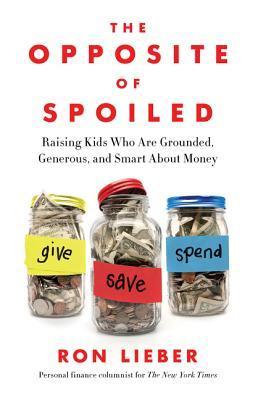What do you think?
Rate this book


256 pages, Hardcover
First published February 1, 2015

More reviews (and no fluff) on the blog http://surrealtalvi.wordpress.com/
The subtitle is really the key to this book: this is about everything having to do with money and raising kids to be smart about it: from being honest about how much you make (and other financial matters) to learning to save, spend wisely, and give. Raising kids who aren't spoiled isn't a main objective so much as a side result of helping them to be wise about money. Note that it really isn't about ways for lower income families to deal with lack of money so much as higher income families manage an abundant stream available to their kids.